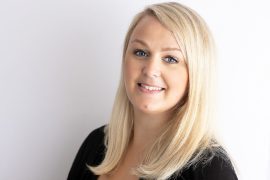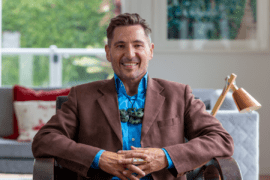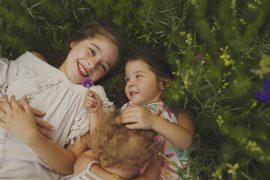Dandelion Seeds Positive Parenting:
Those are precisely the things that I love about reading this book. It has been oh, I don’t know, probably since I was in grad school a thousand years ago that I finished a book in two nights. I finished your book in two nights because it was compelling. I wanted to know what the research said.
My child isn’t a baby anymore, but I wondered, “How’d I do?”
It’s beautifully organised and it’s so logical. As you mentioned, this is not the ‘how-to’ book.
For me, this is the WHY book. Why do we do things the way that we do? And that alone made me want to keep reading.
Again, the organisation and the personal touches – oh my goodness, reading it for your Diaper Genie story alone would have been worthwhile for me. So let me just put that out there.
Tina Payne Bryson:
It’s the most embarrassing, mortifying story that I still can’t believe I put in print. It’s just one of those new mum moments where you realise you did something really stupid.
Dandelion Seeds Positive Parenting:
The fact that you humanise this book throughout makes it not just the science, but about the real people that we all are, because we all have those mortifying moments. Believe me. I have plenty.
Thank you for being so real. These stories and your research make your book so easy to read.
So let me get straight to some brain science with you.
And now, former baby here. I confess. I used to be a baby. I don’t remember much of it at all.
My daughter, on the other hand, claims she remembers the womb. I don’t personally remember the womb and anything after it for a good long time.
So, if we don’t really remember our earliest months, our earliest year on Earth, how do we know that any of it matters?
Tina Payne Bryson:
That’s such a great question…
Stay tuned for the rest of the interview, where Tina Payne Bryson, Ph.D., continues the conversation about the “whys” of parenting for connection.
Or, you can see our entire conversation now in the full video.
Recommendation for The Bottom Line for Baby by Tina Payne Bryson, Ph.D.
Tina Payne Bryson is no stranger to writing straightforward, easy-to-understand, and best of all, easy-to-implement parenting strategies. Her writing simply makes sense: it’s not only logical, but it also speaks to the hearts of parents who want to do well for their kids. It’s the perfect balance.
With so many parenting books available, why do I recommend THIS book by Tina Payne Bryson for parents of babies?
As we discussed, this isn’t simply a “how to” book. Many of her other books with co-author Daniel J. Siegel, M.D., provide proven, connection-based approaches to handling many everyday parenting scenarios.
Instead of ‘how to,’ this is the WHY book. This book gives us the science we need to feel confident that no matter who challenges our parenting decisions in our personal lives, we have the science at our fingertips to validate our choices. I can think of few tools more practical or empowering.
Even more, it helps us quiet our inner voices that may make us question how we’re parenting our babies.
Just as What To Expect When You’re Expecting was the recommended “must-read” for many years, this book should be not only on the shelves, but also in the hands, of all expectant and new parents. It’s the book we all need now. We need it today, in this age of parenting. Every page of The Bottom Line for Baby is relevant.
It’s empowering. It’s practical. It’s – dare I say – downright entertaining as Tina Payne Bryson humanises it throughout with her own personal anecdotes. It’s easy to turn the pages for the sheer enjoyment of her writing, while learning and absorbing all the practical science along the way.
She shares the science in a way that doesn’t leave you wondering why you should make the choices you do; it reads nothing like a textbook.
It ‘translates’ science into heart-understanding. When I read it, it felt as if I were holding the wisdom of some scientifically sage and gifted grandmother, guiding me through all the things my new parent-brain yearned to know.
Tina Payne Bryson, in The Bottom Line for Baby, gives us not only the science to make smart decisions, but also the sense of peace we need to trust the book as the go-to resource we need on topics that might otherwise feel overwhelming.
Perhaps what I love most about Tina Payne Bryson’s approach, and specifically The Bottom Line for Baby, are that everything she writes about is from the framework of connection. Attachment science is her guidepost; her recommendations help foster secure attachment in our babies and children. (As an Amazon Associate I earn from qualifying purchases.)
From what better perspective could she possibly write?
Originally published here.
Sarah R. Moore is an internationally published writer and the founder of Dandelion Seeds Positive Parenting. You can follow her on Facebook, Pinterest, and Instagram. She’s currently worldschooling her family. Her glass is half full.










